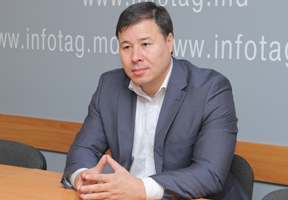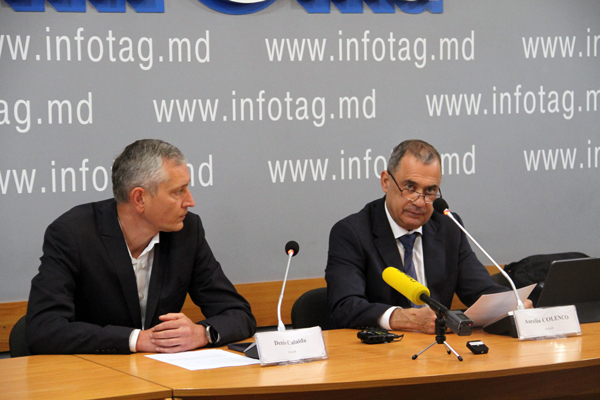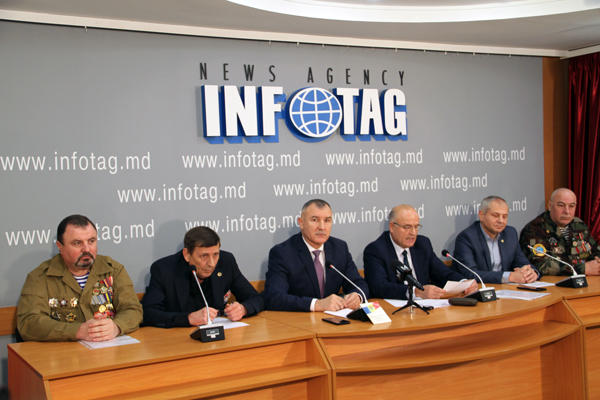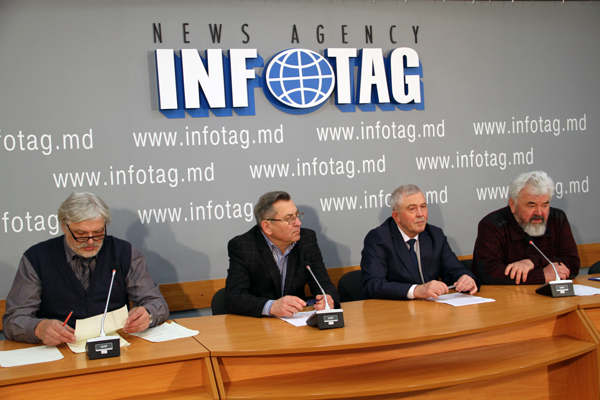Interview
REALITY OF IMPLEMENTING PROTESTERS’ DEMANDS

In an interview with the INFOTAG news agency, the deputy from the Party of Socialists (PSRM), the political analyst Bogdan Tirdea analyzes the protests in Chisinau and the ability to fulfill their requirements.
"I.": In the center of Chisinau are further developing the confrontations of tent camps and the government. How do you see the outcome that would satisfy both parties?
B.T.: The minimum needed result – it is the resignation of the heads of the National Centre for the fight against corruption, the Attorney General, the National Bank, the CCA and the CEC. Plus, the prosecution of people involved in the theft of 1 billion euros from banks. And, of course, the freezing of tariffs for electricity and gas. The authorities can go for it, but only under the pressure from the street.
The maximum wanted result – early elections, but it is more difficult to achieve. It suits only the Liberal Democratic Party. But it does not suit the first deputy chairman of the Democratic Party (DPM), the tycoon Vlad Plahotniuc. Against early elections is also the West, as Brussels and Washington rightly believe that in case of free elections, the leftist parties could win.
"I.": Does not the society have a sense of "uselessness" of protests and demonstrations, when early elections before the expiration of the president's mandate can take place only in theory?
B.T.: The last survey of CBS AXA indicates that 38% are ready to protest, 87% disagree with the policy of the authorities, 91% believe the economic situation unbearable. At the rally of left-wing parties came out, according to estimates of the organizers, up to 120 thousand people. At the meeting of the Civic Platform DA – 100 thousand. So make your own conclusions.
"I.": It seems that people are not ready for effective actions to make the current government resign?!
B.T: That is not true. We barely keep people from more decisive actions. The same say the leaders of the platform DA.
"I.": How true is to believe that behind the actions of the ruling AEI-3 is Vlad Plahotniuc, who pushes away in the shadow Vlad Filat, not to mention Mihai Ghimpu?
B.T.: It is obvious. I have been talking about this for five years now. It is already acknowledged and by foreign ambassadors, although in private conversations. The Secretary General of the EU in his latest article suggested this, which is meant, in particular, for Plahotniuc. Today he controls completely the fraction of DPM, PCRM (40 deputies) and the group of Leanca (3 deputies). He has a strong influence on Mihai Ghimpu as well (Liberal Party); he is holding at bay, but so far has no control over the Liberal Democratic Party; he is trying to split the faction of PSRM (he got Lidia Lupu already). The Plahotniuc power is that today he takes major decisions in the country, preparing to become the president.
"I.": What are the constitutional forms, allowing six months before the expiry of the mandate of the president to dissolve the parliament?
B.T.: I do not see those from a legal point of view. Only the collapse of the government and the chaos in the country, as well as the unfolding of the situation on the worst-case scenario could lead to early elections.
"I.": Should the authorities, at the request of these two "different" and "similar" protests in the center of Chisinau, leave voluntarily?
B.T.: The problem is not just in the protests. The problem is in the lack of confidence in the government (10-14%), the lowest rating of the leaders of the alliance parties (1-3%), fallen power rating of the parties in power (direct rating of 3-5%), not to mention the dissatisfaction of the population. The government has been dysfunctional: on 5 billion lei are frozen the costs, by 1 billion lei have fallen the customs duties, the credit lines of the EU and the World Bank are frozen, the absence of the memorandum with the IMF. The political and economic crisis is at risk of leading the country to chaos. With this baggage, the collapse of the government is inevitable. It is necessary to quickly implement a system reboot – to send into retirement and conduct early elections.
"I.": How strong is now the AEI-3, considering that there was a joint statement last week made by the leaders of three parties – Filat, Lupu and Ghimpu?
B.T.: AEI-3 is bursting at the seams. Ghimpu said the other day that he was ready to leave the Alliance, Filat said that citizens have the right to protest, apparently echoing the platform DA, and Plahotniuc expressed in the sense that he is not against early elections. He split the Liberal Democratic Party faction, dragging a group of deputies to Leanca. Above Filat is hanging the sword of Damocles, with which Plahotniuc threatens him.
How can someone in these conditions cohabit in the AEI-3? The system does not work, the AEI-3 is more dead than alive. And they made a statement to reassure the West, that is all.
"I.": Is there a danger of using the force to deal with the protests?
B.T.: There is. And it is a big one.
"I.": What could trigger the use of force by authorities?
B.T.: The rally in front of the house of Plahotniuc, his property, the prosecutor's office. As well as the demonstrators attempt to break into the government/parliament, or blocking of the roads.
"I.": What in this situation should be the role of external partners of the Republic of Moldova?
B.T.: At least, this position should be neutral. Or, as done in Kiev – to require listening to the demands of people at the protests. But they are afraid of early elections, the change of the development vector of the Republic of Moldova, the growth ranking of left-wing parties, therefore they support the authorities, however reluctantly, in fact, "through clenched teeth".
"I.": What do you make of their decision to freeze the direct financing of the budget?
B.T.: It is about a very restrained attitude to the Alliance, the loss of confidence. The West wanted to appoint Maia Sandu as the prime minister and insisted on the appointment of a European public prosecutor. But this did not happen.
"I." Who would want the "development partners" to see in power in the Republic of Moldova after the possible parliamentary elections?
B.T.: Maia Sandu. Slightly less – Iurie Leanca, who has lost much credibility and rating.
"I.": How can early elections solve this crisis situation in the state, judging by the results of the elections on November 30, 2014, and June 14, 2015?
B.T.: They can. The leftist parties are growing in their popularity. The Platform DA already has 7%. The Leanca’s project also looks good. That means these groups are on clear progression path. The power will be reformatted in case of early elections. And perhaps quite radically.
"I.": What is your optimistic and pessimistic forecast of the situation in the near future – the end of 2015 – the middle of 2016?
B.T.: Optimistic scenarios I do not see. Therefore, I will say about the pessimistic scenario: the economy will fall. The social situation of citizens will worsen. The political instability will increase. It will be possible to rectify the situation only in case of early elections, and even then, by the end of 2016, beginning of 2017, and not before. The new forces in any case will need time to correct the blunders and mistakes, and even explicit anti-state actions that were conducted by the AEI-3.
Comments [ 1 ] Add Comment
-
It is really truth!
























Add Comment